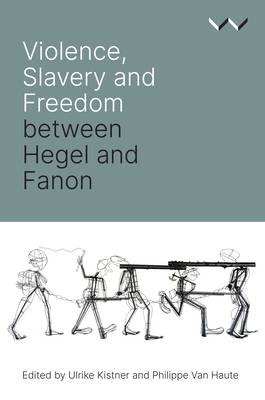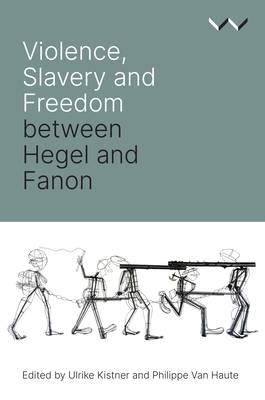
- Afhalen na 1 uur in een winkel met voorraad
- Gratis thuislevering in België vanaf € 30
- Ruim aanbod met 7 miljoen producten
- Afhalen na 1 uur in een winkel met voorraad
- Gratis thuislevering in België vanaf € 30
- Ruim aanbod met 7 miljoen producten
Zoeken
Violence, Slavery and Freedom Between Hegel and Fanon
Ulrike Kistner, Philippe Van Haute, Robert Bernasconi, Ato Sekyi-Otu, Josias Tembo, Beata Stawarska, Reingard Nethersole
Paperback | Engels
€ 32,45
+ 64 punten
Omschrijving
A deep dive into the influences of Hegelian thought on the work of revolutionary and postcolonial theorist Frantz Fanon
Hegel is most often mentioned - and not without good reason - as one of the paradigmatic exponents of Eurocentrism and racism in Western philosophy. But his thought also played a crucial and formative role in the work of one of the iconic thinkers of the 'decolonial turn', Frantz Fanon. This would be inexplicable if it were not for the much-quoted 'lord-bondsman' dialectic - frequently referred to as the 'master-slave dialectic' - described in Hegel's The Phenomenology of Spirit. Fanon takes up this dialectic negatively in contexts of violence-riven (post-)slavery and colonialism; yet in works such as Black Skin, White Masks and The Wretched of the Earth he upholds a Hegelian-inspired vision of freedom. The essays in this collection offer close readings of Hegel's text, and of responses to it in the work of twentieth-century philosophers, that highlight the entangled history of the translations, transpositions and transformations of Hegel in the work of Fanon, and more generally in colonial, postcolonial and decolonial contexts.Specificaties
Betrokkenen
- Auteur(s):
- Uitgeverij:
Inhoud
- Aantal bladzijden:
- 176
- Taal:
- Engels
Eigenschappen
- Productcode (EAN):
- 9781776146239
- Verschijningsdatum:
- 1/09/2020
- Uitvoering:
- Paperback
- Formaat:
- Trade paperback (VS)
- Afmetingen:
- 152 mm x 229 mm
- Gewicht:
- 267 g

Alleen bij Standaard Boekhandel
+ 64 punten op je klantenkaart van Standaard Boekhandel
Beoordelingen
We publiceren alleen reviews die voldoen aan de voorwaarden voor reviews. Bekijk onze voorwaarden voor reviews.











